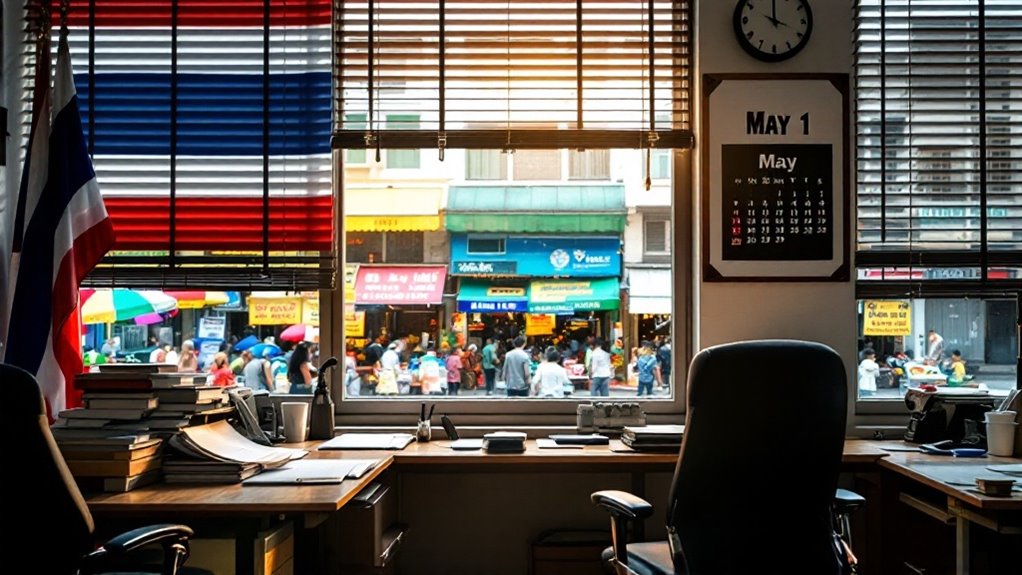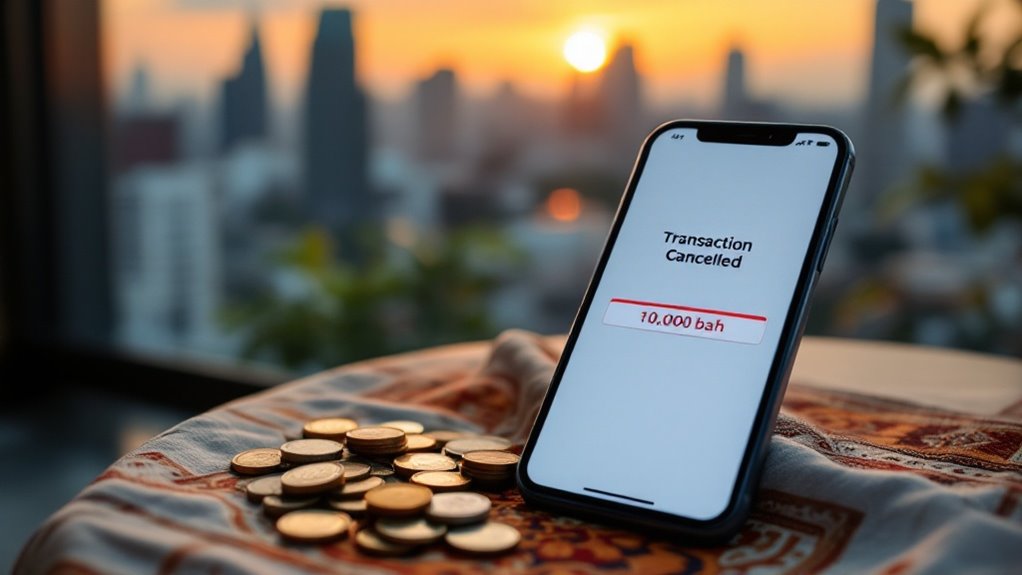Thai government workers often do not receive Labour Day off because their holiday entitlements fall under the Civil Service Act and depend on annual resolutions set by the cabinet, rather than being guaranteed by law. In contrast, private sector employees are protected by the Thai Labor Protection Act, which expressly recognizes Labour Day as a paid public holiday. This legal distinction means government employees can face uncertainty each year regarding their days off, while the rationale and impact of this difference warrant closer examination ahead.
Although Labour Day on May 1 is widely recognized as a public holiday in Thailand, significant differences exist in how this day off is applied to government workers compared to private sector employees. The underlying reason lies in the legal frameworks that govern employment relations in the country.
The Thai Labor Protection Act, which mandates a minimum of 13 public holidays per year—including Labour Day—applies exclusively to private sector employees. Section 56 of this Act guarantees that private workers are granted paid leave on Labour Day, and if required to work, Section 62 stipulates that they must receive twice their normal hourly wage. Enforcement is strict, with penalties for non-compliance, and disputes are handled through labor courts. In recent years, broader workers’ rights advocacy has gained momentum, with labor groups demanding reforms to ensure fair treatment and protection for all types of workers. While public transportation operates normally throughout the day on Labour Day, government offices being closed does not always mean government workers receive a paid holiday.
Thailand’s Labor Protection Act ensures private sector employees get paid leave on Labour Day, with double pay if they are required to work.
In contrast, government employees fall under the Civil Service Act and related administrative orders, which do not automatically include Labour Day as a day off. Instead, their holiday entitlements are determined annually through cabinet resolutions and official announcements, resulting in variability from year to year.
There is no explicit exclusion of Labour Day for government workers in the Civil Service Act, but the law’s omission and reliance on annual declarations create uncertainty and inconsistency in practice. Overtime and holiday pay for government staff are regulated by internal policies rather than standardized national law, leading to less transparency and predictability in compensation.
Historically, Labour Day has been recognized in Thailand since 1932 and became an official holiday for private sector workers in 1974. However, the longstanding division between private and public employment legislation has left government employees without a guaranteed right to the day off.
Recent advocacy efforts, especially ahead of Labour Day 2025, have called for reforms to close this gap, including proposals to amend the Labor Protection Act or harmonize public holiday entitlements across both sectors. Despite increased media attention and union demands, government responses have focused primarily on private sector reforms, with limited progress on standardizing public sector holiday rights.
This legal and administrative duality continues to shape the experience of Labour Day for Thailand’s workforce.









